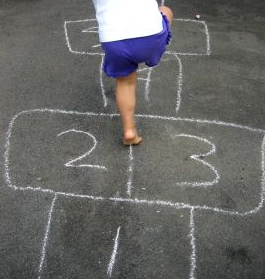
Since the crisis began in 2008 the number of children living below the poverty line has increase by 2.6 million.
Since the global recession began in 2008 the number of children living in poverty in affluent countries has risen by 2.6 million, according to a report from UNICEF. In 23 of the 41 countries including in the study, poverty has jumped sharply. In Ireland, Greece, Croatia, Latvia, and Iceland rates rose over 50%.
UNICEF, a branch of the United Nations, says the number of children living below the poverty line in the developed world is now 76.5 million. The report ranks 41 countries from the OECD and EU according to whether child poverty rates have increased or decreased since 2008.
Years of progress lost
Greece was especially hard hit during the crisis and is struggling to recover. The 2012 median household income for families with children sank to levels not seen since 1998. This represents a loss of 14 years of income progress, says the report.
“Many affluent countries have suffered a ‘great leap backwards’ in terms of household income, and the impact on children will have long-lasting repercussions for them and their communities,” said Jeffrey O’Malley, UNICEF’s Head of Global Policy and Strategy in a statement.
By the same measure, Ireland, Luxembourg, and Spain lost a decade. Iceland lost nine years and Italy, Hungary and Portugal lost eight.
Social safety nets are key
The recession has hit 15-24 year olds particularly hard as record unemployment levels among young people were seen especially in the Mediterranean region. In 2013 almost 7.5 million young people were classed as NEET (not in education, employment, or training), that’s almost equivalent to the population of Switzerland. This number has risen dramatically since the recession began. Currently 57.3% of under 25 year olds in Greece and 54.9% in Spain are unemployed.
In the United States, child poverty has increased more during this recession than that of 1982. The report found social safety net measures provided support to working poor families, but were ineffective for the extreme poor without jobs. Child poverty has increased in 34 out of the 50 states since the start of the crisis. In 2012, 24.2 million children were living in poverty, a net increase of 1.7 million from 2008.
In some countries is isn’t all bad news however, there were places where child poverty fell, sometimes significantly. Australia, Chile, Finland, Norway, Poland, and Slovakia all reduced levels by around 30%.
“UNICEF research shows that the strength of social protection policies was a decisive factor in poverty prevention. All countries need strong social safety nets to protect children in bad times and in good – and wealthy countries should lead by example, explicitly committing to eradicate child poverty, developing policies to offset economic downturns, and making child well-being a top priority,” O’Malley said.